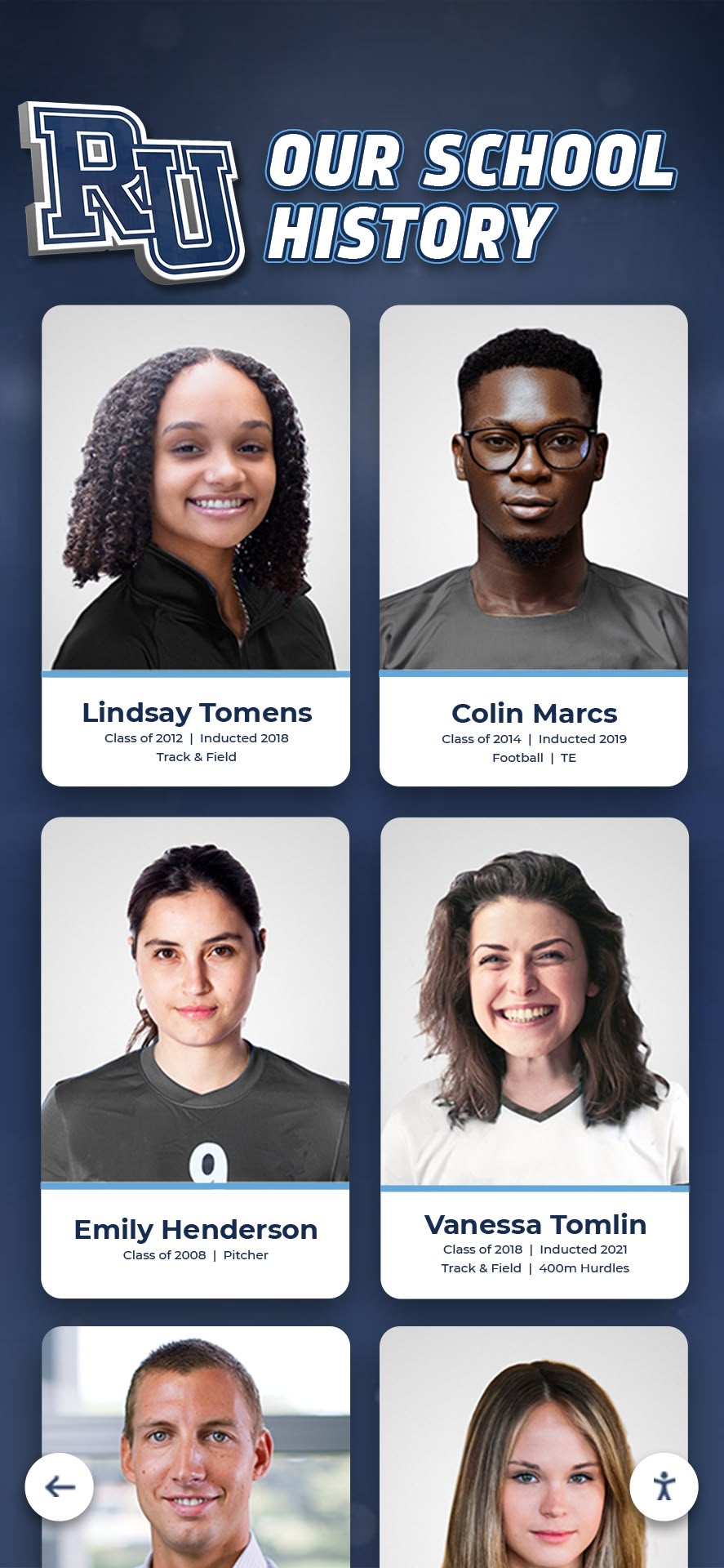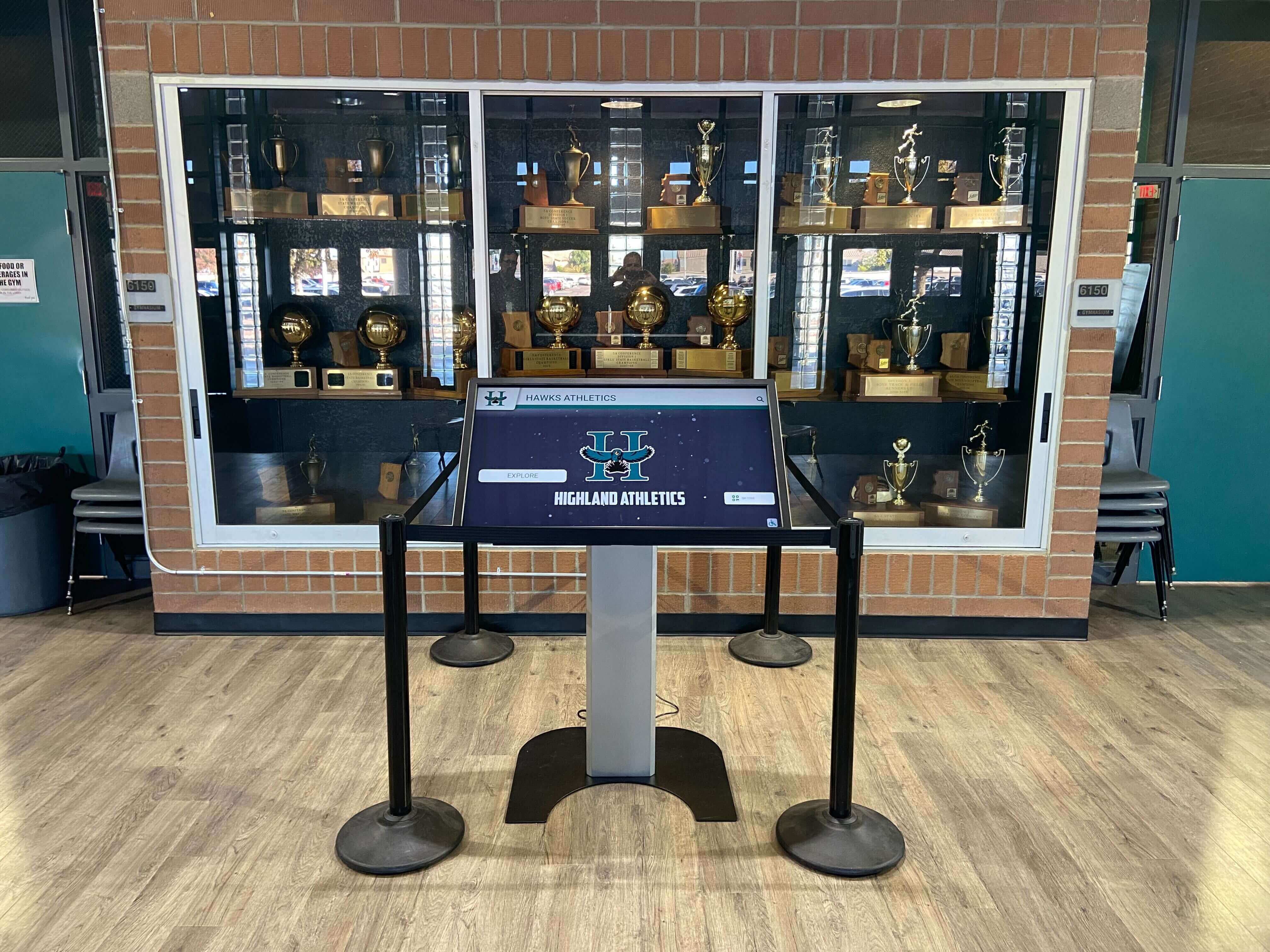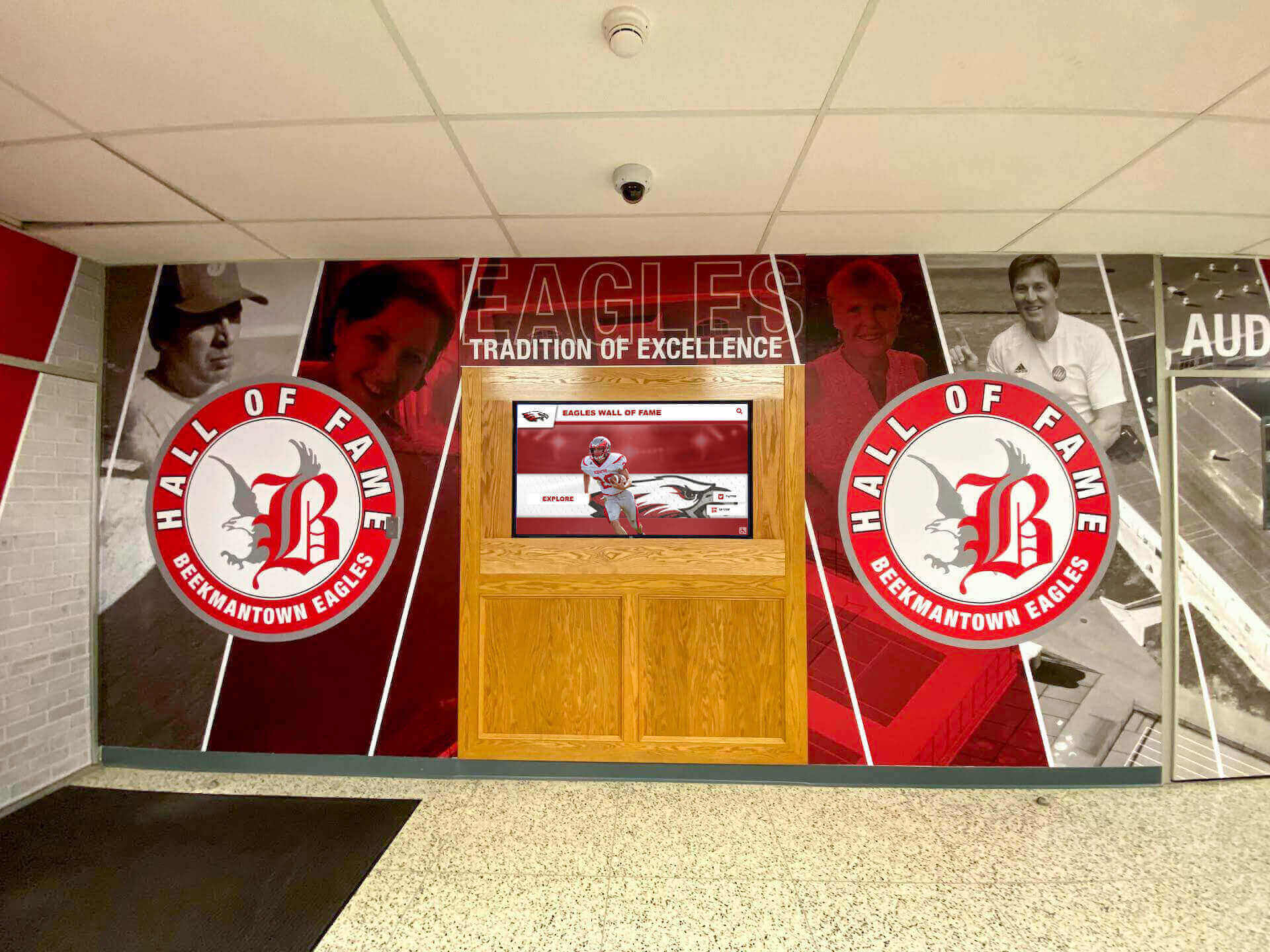Finding school sports records can feel like detective work—tracking down decades-old championship results, locating record-breaking performances buried in filing cabinets, and piecing together athletic history from fragmented sources. Whether you’re an athletic director building a digital record board, a coach researching program history, or an alum searching for personal achievements, locating accurate sports records requires knowing where to look and how to verify information.
Many schools discover their athletic archives are incomplete, with missing yearbooks, lost record books, and championships documented only in fading newspaper clippings. Meanwhile, incredible achievements go unrecognized simply because no one knows where to find the documentation proving they occurred. This scattered, vulnerable state of athletic records means countless accomplishments risk being permanently lost to history.
This comprehensive guide provides practical strategies for locating school sports records from multiple sources, verifying accuracy, filling gaps in historical documentation, and creating permanent digital archives that preserve athletic history for future generations.
Athletic records tell the story of program excellence across generations—from championship teams to individual record holders to coaches who built lasting traditions. Finding and preserving these records honors past athletes while inspiring current competitors to add their names to the record books.

Preserving athletic records ensures historic achievements remain visible and celebrated
Why Finding and Documenting Sports Records Matters
Before diving into specific search strategies, understanding why accurate record-keeping matters helps maintain commitment to what can be time-consuming detective work.
Honoring Athletic Achievement
Athletes who set records, win championships, and represent schools with excellence deserve lasting recognition of their accomplishments. When records remain undocumented or inaccessible, these achievements effectively disappear from institutional memory despite the dedication and skill they required.
Comprehensive record documentation ensures:
- Record-breaking performances receive appropriate recognition
- Championship teams are properly celebrated
- Individual excellence across all sports gains equal visibility
- Coaching accomplishments and program milestones are preserved
- Athletic traditions and program evolution remain documented
Inspiring Current Athletes
Visible athletic records motivate current competitors by establishing clear performance standards and demonstrating what’s possible through dedication and training. When athletes can see exactly what records they’re chasing and understand the historical context of performances, motivation increases significantly.
Touch board athletic records displays make historical achievements accessible and inspiring, creating powerful training motivation as athletes pursue their own place in program history.
Building School Pride and Identity
Athletic success contributes significantly to school identity and community pride. Well-documented sports history strengthens institutional culture by connecting current students to generations of excellence that came before them.
Schools with comprehensive athletic archives can:
- Showcase program traditions spanning decades
- Demonstrate sustained competitive excellence
- Connect current teams to historical success
- Build pride in athletic department quality
- Strengthen alumni connections to their sports experiences
Recruiting and Program Promotion
Prospective student-athletes and their families evaluate program quality partly through track record of success. Comprehensive, accessible athletic records demonstrate program competitiveness and tradition, influencing recruiting decisions in schools’ favor.
Digital athletic archives enable:
- Easy sharing of program achievements with recruits
- Demonstration of competitive tradition and excellence
- Showcasing of athletes who succeeded at next level
- Building credibility through documented success
- Creating professional image that attracts quality athletes
Where to Find School Sports Records
Locating sports records requires systematic searching across multiple sources. Each source provides different types of information and covers different time periods.
School Archives and Athletic Department Files
Start with your own institution’s records, which often contain more information than initially apparent despite seeming incomplete.
Athletic Department Files Search systematically through athletic office storage including:
- Current record books and tracking systems
- Historical record boards and trophy documentation
- Coaching records and season summaries
- Media guides and program materials from past seasons
- Award certificates and recognition documentation
- Event programs from championships and tournaments
Many athletic departments maintain filing cabinets containing decades of materials that no one has systematically organized. Dedicating time to thorough searches often uncovers forgotten documentation.
School Archives and Libraries Institutional archives may house:
- Yearbook collections documenting athletic participation
- School newspapers covering sports results
- Board meeting minutes noting athletic achievements
- Administrative files on facility construction or renovations
- Photograph collections including sports images
- Alumni publications featuring athletic content

School archives often contain valuable athletic documentation requiring systematic review
Contact school librarians or archivists who can help navigate collections and identify relevant materials that might not be obviously labeled as athletic records.
State High School Athletic Association Resources
State athletic associations maintain records for state competitions, championships, and sanctioned events. These represent authoritative sources for verifying state-level achievements.
State Association Record Books Most state high school athletic associations publish record books documenting:
- State championship results across all sports
- Individual event records in track, swimming, and other measured sports
- Team records and notable achievements
- All-state selections and awards
- Historical tournament results
According to the National Federation of State High School Associations, state associations maintain these records through systematic verification processes requiring official documentation before inclusion.
Access state records through:
- State association websites with searchable databases
- Published record books available as PDFs
- Direct contact with association staff for specific inquiries
- Historical archives maintained by associations
State Tournament and Championship Results State associations typically maintain comprehensive results from state tournaments, including:
- Complete brackets and scores from team tournaments
- Individual placement results from championships
- Performance statistics and measurements
- Records set during state championship events
- Historical progression of records over time
National Record Resources
Several organizations maintain national high school sports records providing context for evaluating school achievements.
National High School Sports Record Book The NFHS National High School Sports Record Book documents national interscholastic records across 16 sports. While most school records won’t reach national level, this resource provides:
- Ultimate performance standards for comparison
- Historical context for exceptional achievements
- Verification procedures for record claims
- Lists of national record holders and performances
Sport-Specific National Organizations Various organizations track high school records in specific sports:
- Athletic.net for track and field and cross country
- MaxPreps for multiple team sports
- USA Swimming for age-group swimming records
- National Wrestling Coaches Association for wrestling
- Various other sport-specific databases
These platforms often allow schools to submit results and maintain profiles, creating ongoing record documentation.
Local Newspaper Archives
Historical newspaper coverage provides valuable documentation of athletic achievements, especially for events predating modern digital record-keeping.
Searching Newspaper Archives Locate sports records through:
- Local library newspaper collections
- Online newspaper archives (Newspapers.com, Ancestry.com, Google News Archive)
- Regional newspaper websites with searchable historical content
- Microfilm collections at libraries or historical societies
- University libraries with regional newspaper collections

Combining historical documentation with modern displays preserves athletic legacy
What Newspapers Document Sports coverage typically includes:
- Game results and scores
- Individual performance statistics
- Tournament brackets and advancement
- Season records and championships
- All-conference and all-state selections
- Record-breaking performances with specific measurements
- Coaching milestones and achievements
- Feature stories providing context and details
Newspaper research proves especially valuable for filling gaps from decades when schools maintained less comprehensive internal documentation.
Alumni Networks and Community Memory
Current and former athletes, coaches, families, and fans often possess information and materials unavailable through official channels.
Alumni Outreach Strategies Engage alumni through:
- Social media posts in class year groups requesting specific information
- Alumni newsletter requests for records documentation
- Reunion communications asking attendees to share memorabilia
- Direct outreach to known record holders or championship team members
- Requests for individuals to search personal collections for materials
Many alumni keep awards, certificates, programs, and media guides that schools no longer have. Some maintain personal records and statistics more detailed than official school documentation.
Community Historical Society Resources Local historical societies may house:
- Donated sports memorabilia and documentation
- Community newspaper archives
- Photograph collections including athletic events
- Oral history recordings mentioning athletics
- Local history publications covering schools
Building relationships with historical society staff can unlock access to materials and expertise valuable for athletic history research.
Coaching Records and Personal Archives
Long-serving coaches often maintain personal records more comprehensive than official school documentation. When coaches retire or transition, their personal archives represent important historical resources if preserved appropriately.
Accessing Coaching Records With appropriate respect for privacy and permission:
- Contact retired coaches about accessing historical materials
- Ask current coaches about predecessors’ record-keeping
- Request donation of coaching records to school archives
- Scan and preserve materials while respecting ownership
- Conduct oral history interviews capturing coaches’ memories
Coaching records frequently include:
- Season-by-season statistics and results
- Individual athlete performance tracking
- Meet and competition results with detailed information
- Personal notes about record performances and milestones
- Contact information for athletes and opposing coaches
- Photographs and memorabilia from significant events
Organizing and Verifying Found Records
Once you locate potential records, systematic organization and verification ensure accuracy before publication.
Creating Comprehensive Record Documentation
Develop consistent systems for recording found information:
Standard Record Documentation Format For each record, document:
- Specific record achievement (measurement, time, score)
- Athlete name(s) and graduation year
- Date of performance (as specific as possible)
- Competition or game where achieved
- Previous record holder and measurement
- Verification sources consulted
- Any additional context or notes
- Photos or supporting materials if available
Sport-Specific Organization Organize by:
- Individual sports (track, swimming, wrestling, etc.)
- Team sports (basketball, soccer, volleyball, etc.)
- Record categories within each sport
- Gender and competition level if applicable
- Historical periods or eras for context
Consistent organization enables efficient updates when new records occur and helps identify gaps requiring additional research.

Organized digital displays make records easily accessible and updateable
Verification Procedures
Establish verification processes ensuring published records are accurate:
Multiple Source Confirmation Require documentation from at least two independent sources:
- Official results from athletic association or league
- Newspaper coverage of event
- Program or yearbook documentation
- Coach or athlete confirmation
- Video or photo evidence when available
Never publish records based solely on memory or single-source documentation that cannot be independently verified.
Handling Uncertain Information When records cannot be fully verified:
- Note uncertainty in record documentation
- Publish with appropriate qualifications (“believed to be,” “per available records”)
- Continue searching for verification
- Invite community input to confirm or correct
- Be prepared to update if better information emerges
Transparency about uncertainty protects credibility while allowing partial information to be shared appropriately.
Addressing Conflicts and Inconsistencies
Research often uncovers conflicting information about records requiring investigation and resolution.
Common Conflicts Discrepancies arise from:
- Different sources reporting different measurements or times
- Uncertainty about whether hand-timed vs. electronic times
- Confusion about which meet or competition achieved record
- Changes in event specifications over time
- Errors in historical documentation
- Confusion between freshman, JV, and varsity records
Resolution Strategies Address conflicts through:
- Consulting most authoritative source available
- Reviewing original source materials when possible
- Contacting participants or witnesses for clarification
- Documenting conflicting sources in records
- Making conservative decisions when uncertainty remains
- Being willing to update when better information surfaces
Building relationships with state associations and league officials can help resolve questions about official record documentation.
Filling Gaps in Historical Records
Most schools discover significant gaps in athletic documentation. Systematic approaches help fill these gaps over time.
Prioritizing Research Efforts
Focus limited research time on highest-priority gaps:
High-Priority Targets Address first:
- Recent decades (1990s-present) where athletes may still be reachable
- Sports with competitive tradition deserving documentation
- Championship seasons requiring full documentation
- Known record holders whose specific achievements need verification
- Periods with almost-complete information needing minor gaps filled
Lower Priority Research Defer when necessary:
- Very distant history (pre-1950) with limited available sources
- Sports that were short-lived or less competitive
- Routine season records from non-championship years
- Detailed statistics beyond basic records and championships
Acknowledge that perfect historical reconstruction may be impossible. Focus on documenting what can be reasonably verified rather than pursuing every detail.
Crowdsourcing Historical Information
Engage community in filling information gaps through systematic appeals:
Effective Crowdsourcing Launch campaigns that:
- Clearly identify specific information needed
- Explain how community can help
- Provide easy submission processes
- Acknowledge and recognize contributors
- Build excitement around historical preservation
- Share findings as research progresses
Community participation often uncovers unexpected sources and generates enthusiasm for athletic history preservation beyond initial record-finding goals.
Managing Crowdsourced Information When community members provide information:
- Thank contributors promptly and genuinely
- Verify information through additional sources when possible
- Document contributor as source
- Follow up with questions if clarification needed
- Share how their contribution helps complete records
- Maintain organized tracking of submissions
Creating Modern Digital Record Systems
Once historical records are located and verified, creating accessible digital systems ensures preservation and ongoing updates.
Digital Record Board Solutions
Modern schools increasingly adopt digital displays that overcome limitations of traditional physical record boards.
Advantages of Digital Systems Digital record boards provide:
- Unlimited capacity for records across all sports
- Easy updates when new records occur
- Rich multimedia including photos and videos
- Searchable databases finding specific records instantly
- Historical archives preserving all-time achievements
- Remote management from any internet-connected device
- Integration with websites extending access beyond physical campus
Unlike physical boards limited by wall space, digital systems celebrate comprehensive athletic achievement across all sports and decades.
Implementation Considerations When implementing digital record systems:
- Select hardware appropriate for placement and visibility
- Choose software platforms designed for athletic records
- Plan content migration from existing systems
- Develop update procedures and assign responsibilities
- Train staff on system management
- Create backup systems protecting information
- Consider solutions like Rocket Alumni Solutions offering comprehensive athletic recognition platforms

Modern digital systems provide unlimited capacity for documenting athletic excellence
Web-Based Record Access
Extend record access beyond physical displays through online databases:
Online Athletic Records Benefits Web platforms enable:
- Alumni worldwide viewing school records
- Recruits researching program history
- Media accessing accurate information for coverage
- Families exploring athletes’ achievements
- Researchers studying athletic trends
- Community members connecting with school athletics
Platform Options Schools can implement through:
- Dedicated athletic department website sections
- School district athletic pages
- Integration with student information systems
- Specialized athletic recognition platforms
- Simple PDF or spreadsheet publishing
- Integration with digital record board systems
Even basic web publication dramatically increases record accessibility compared to information locked in filing cabinets or displayed only on physical boards.
Ongoing Record Maintenance
Establish sustainable processes ensuring records remain current:
Update Procedures Create systems for:
- Immediate entry of new records as they occur
- End-of-season verification and documentation
- Annual review ensuring accuracy
- Integration of new athletes and achievements
- Correction processes when errors are discovered
- Historical research continuing to fill gaps
Responsibility Assignment Clearly assign responsibilities to:
- Athletic directors for oversight and approval
- Coaches for sport-specific record tracking
- Athletic secretaries for data entry
- IT staff for system maintenance
- Student assistants for research and data entry when appropriate
Clear accountability prevents records from becoming outdated through neglect or role confusion.
Advanced Record Research Strategies
Some historical information requires more sophisticated research approaches.
Requesting Records from Other Institutions
Competition against other schools creates documentation trails through opponents’ records:
Contacting Opposing Schools When missing game results or statistics:
- Identify likely opponents from league membership
- Contact athletic directors at opposing schools
- Request specific season or game information
- Offer reciprocal assistance with their records
- Share findings that benefit both schools
Schools often have records from games against you even when you lack documentation, creating mutual benefit from sharing.
Using Statistical Services and Platforms
Modern platforms accumulate athletic data potentially including your school’s information:
Athletic.net for Track and Cross Country This platform maintains extensive high school track and field records. Search for:
- Individual athlete performances
- Team meet results
- School and league records
- Historical season results
- National performance rankings
Athletic.net data can fill gaps in track and cross country documentation while providing performance context.
MaxPreps for Team Sports MaxPreps maintains profiles for thousands of high schools with:
- Season schedules and scores
- Player statistics and rosters
- Championship results
- School records and milestones
- Historical team information
Schools can claim profiles and supplement information while accessing historical data entered by others.
Sport-Specific Databases Various sports maintain specialized resources:
- DyeStat for cross country and distance running
- Wrestling databases for tournament results
- Swimming databases with time verification
- Baseball/softball statistics platforms
These specialized resources often have deeper data than general platforms.
Professional Archival Research
For significant historical research projects, consider professional assistance:
When to Consider Professional Help Complex projects benefiting from professional expertise:
- Comprehensive athletic history books or publications
- Major anniversary celebrations requiring thorough documentation
- Athletic hall of fame program launch needing historical research
- Legal or verification requirements demanding certainty
- Projects requiring expertise with historical archives
Professional researchers and historians can efficiently navigate archives and sources that would take volunteers substantially longer to master.
Building Athletic Recognition Programs Around Found Records
Once records are located and organized, build recognition programs honoring achievements:
Athletic Hall of Fame Programs
Establish formal recognition for most exceptional achievements:
Hall of Fame Categories Recognize:
- Individual athletes with outstanding careers
- Championship teams
- Record holders across all sports
- Distinguished coaches and program builders
- Contributors and supporters
Creating an alumni hall of fame that includes athletic excellence provides structured recognition framework while engaging broader alumni community.
Record Board Displays
Traditional physical or modern digital displays celebrating specific records:
Display Components Comprehensive record boards include:
- Current record holder name and achievement
- Date record was established
- Previous record and holder
- Photos of record holders
- Historical progression showing improvement
- Championship team rosters and results
Basketball record boards and similar sport-specific displays provide dedicated recognition for each athletic program.

Permanent displays honor championship teams and record-setting athletes
Annual Recognition Events
Celebrate achievements through regular events:
Recognition Opportunities Build tradition through:
- End-of-season athletic banquets
- Record-breaking performance announcements
- Championship celebration assemblies
- Athletic hall of fame induction ceremonies
- Senior athlete recognition programs
- Coaching milestone acknowledgment
Regular celebration reinforces that athletic excellence matters while providing memorable experiences for honored athletes and teams.
Preserving Athletic History for the Future
Beyond finding current records, establish systems ensuring future achievements receive proper documentation:
Systematic Record-Keeping Processes
Implement procedures preventing future gaps:
Season Documentation Requirements Require coaches to submit:
- End-of-season records and statistics
- Championship results and brackets
- All-conference and all-state selections
- Individual award recipients
- Significant achievements and milestones
- Team and individual photos
Clear expectations and deadlines ensure consistent documentation as seasons occur rather than requiring historical reconstruction decades later.
Digital Preservation and Backup
Protect digital records through proper backup:
Backup Strategies Maintain:
- Cloud storage with automatic backup
- Local server backup copies
- External drive archival copies
- Physical documentation of critical information
- Multiple format versions (PDF, spreadsheet, database)
Regular backup prevents loss from technology failures, ensuring records survive for future generations.
Building School Pride Through Athletic History
Comprehensive athletic record documentation strengthens institutional culture and pride:
Schools with well-maintained athletic records can:
- Demonstrate competitive tradition to recruits
- Strengthen alumni connections to athletic programs
- Build current athlete pride in program history
- Create content for communications and marketing
- Strengthen institutional identity and tradition
Building school pride through athletic recognition creates positive culture benefiting entire educational communities.
Conclusion: Honoring Athletic Excellence Through Comprehensive Documentation
Finding and preserving school sports records represents important work honoring athletes who dedicated themselves to competitive excellence. Whether locating records from last season or researching achievements from decades past, systematic approaches enable comprehensive documentation that celebrates athletic tradition while inspiring future excellence.
The strategies in this guide—from searching multiple sources to verifying accuracy to implementing modern digital systems—provide practical frameworks for athletic directors, coaches, alumni, and schools committed to preserving athletic history. While historical reconstruction requires patience and persistence, the result is permanent documentation ensuring past achievements receive lasting recognition they deserve.
Modern digital recognition systems like Rocket Alumni Solutions make comprehensive athletic record documentation more achievable than ever before, combining unlimited digital capacity with easy updates and engaging displays that bring athletic history to life for current students, alumni, and broader communities.
Transform How You Document Athletic Excellence
Discover how modern digital recognition systems can help you preserve athletic history comprehensively while inspiring current athletes through visible tradition and excellence.
Explore Athletic Recognition SolutionsStart with what you can document today—recent records, current achievements, information from accessible sources. Build systematically over time as you locate additional documentation and fill historical gaps. Every record preserved, every achievement documented, and every athlete recognized strengthens athletic tradition while honoring excellence that might otherwise be forgotten.
Your athletes’ achievements deserve comprehensive documentation and lasting recognition. With thoughtful searching, careful verification, and modern digital preservation, you can create athletic record archives that serve your school community for generations to come—inspiring current athletes while honoring past excellence that built your program’s proud tradition.
Ready to begin documenting your athletic history? Whether starting comprehensive historical research or implementing modern digital displays for ongoing record-keeping, the time to preserve your athletic legacy is now.



































